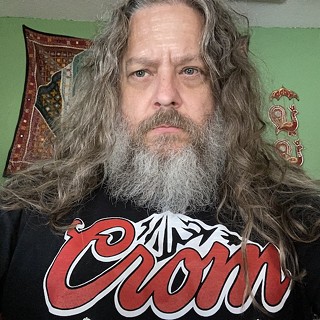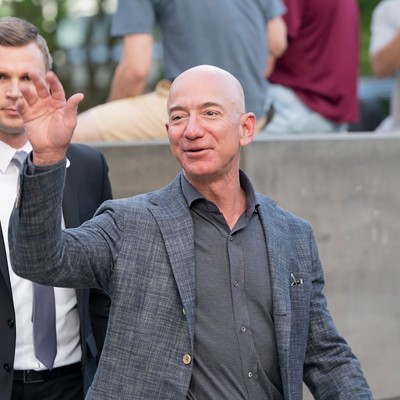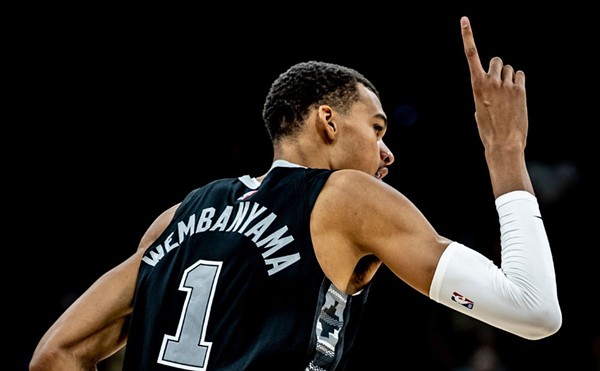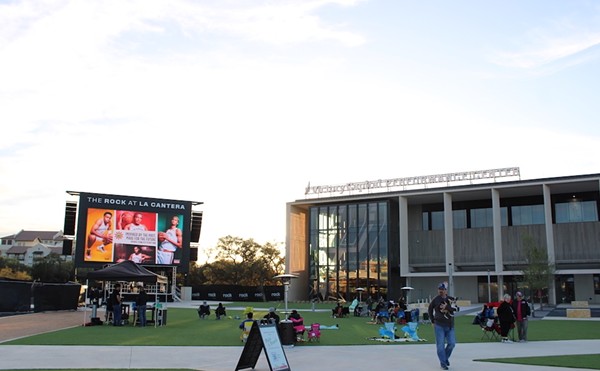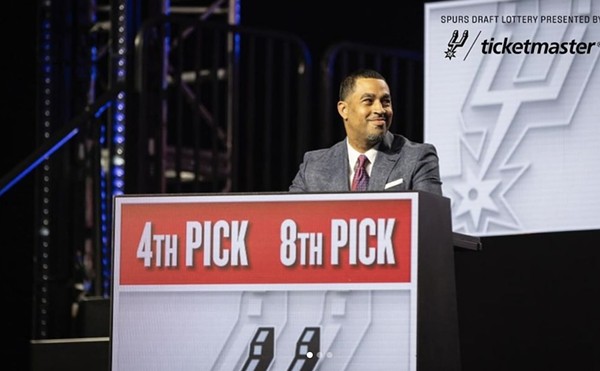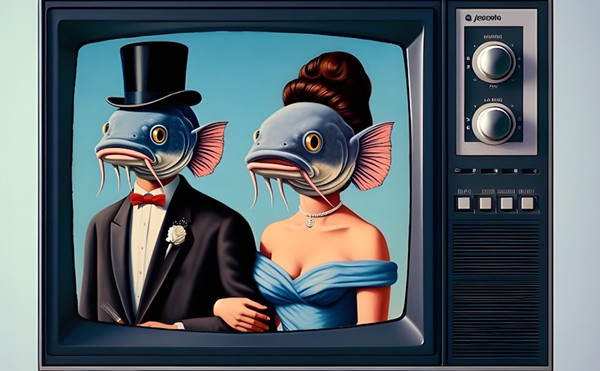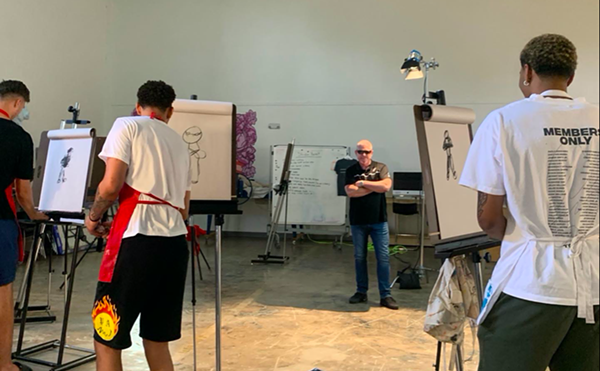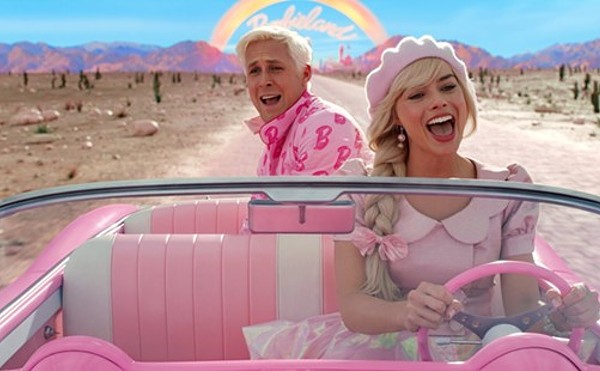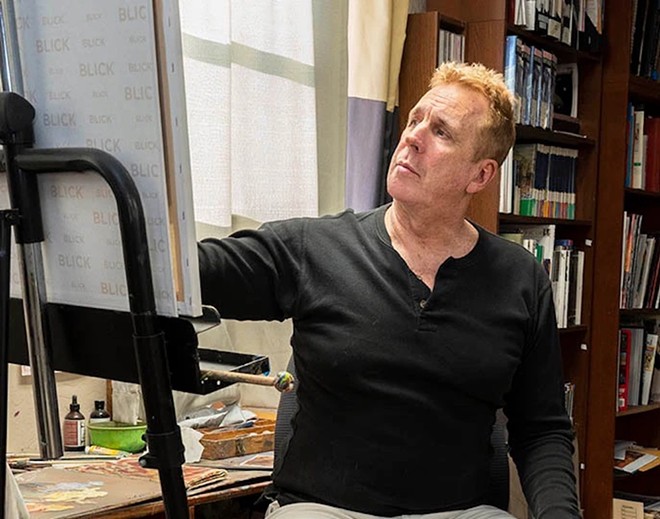
Comic book artist Steve Rude, a pivotal figure in the industry's indie-book revolution of the early '80s, will present a May 4-5 painting workshop in San Antonio.
The free event, held at Nelco Comics, 1134 N. Flores St., will feature painting demonstrations by Rude on both days along with Q&A sessions with the artist. In addition to discounts and giveaways for Free Comics Day, which happens to fall on Saturday, May 4, Rude will have signed prints and limited-edition merchandise for sale.
Rude exploded onto the scene with his groundbreaking self-published science fiction comic Nexus, which debuted in 1981. That success catapulted him to work for Marvel, DC and other industry stalwarts. Along the way, Rude has put his own spin on beloved characters ranging from Johnny Quest and Space Ghost to the X-Men and Spider-Man, picking up top industry awards including the Kirby, the Eisner, the Harvey and the Inkpot along the away.
Known for his skills as a penciler, inker and painter, Rude has drawn inspiration from well-known comic stylists Alex Toth and Jack Kirby as well as greats of American illustration including Norman Rockwell and Andrew Loomis.
We caught up with Rude via phone from his home in Arizona for a preview of the workshop and insight into the ever-evolving comics industry. We also asked him about his return to indie publishing using Kickstarter as a crowdfunding source.
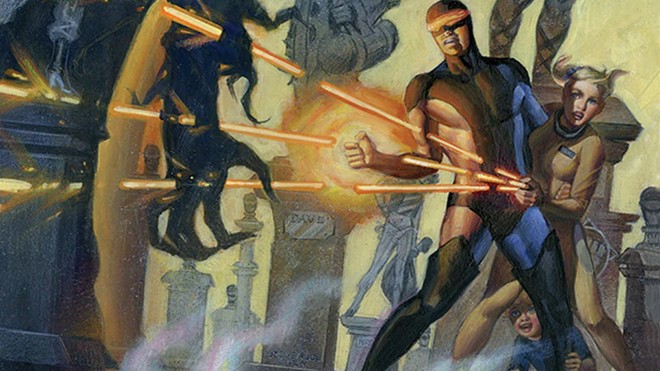
At this point in your career, you're doing a fair number of illustration workshops. Have you had feedback that they've helped people explore their own creativity?
Oh, there's no doubt they're helpful. Obviously, if people have some kind of regard for you, and someone's paying money for you to come out and give a demonstration, you better be ready to entertain them and give them what they want.
You're held in high regard as a painter, penciler and inker, but this workshop is specifically focused on the painting side of your work, correct?
That's right. There are a lot of people, Sanford, in the comic book business that apparently have no interest in learning the art of illustration, which involves paint. I'm not one of them.
This workshop is open to anyone of any skill level. If somebody's never painted before, never even picked up a pencil, could they still get something out of seeing you work?
The way I see it, every pair of eyes that walks into this store and happens to see this guy up there painting and drawing superheroes, that's going to ignite a spark — and that's what it's all about for me. Just like you and I as kids saw something that drew us into the occupation that we currently have, that's what will take place when I'm at the store doing my demos.
Everyone will see it a little differently. Some people will say, "Boy, that was fun and entertaining." Others are going to say, "I want to be like that" — just like I wanted to be Jack Kirby and Andrew Loomis and Norman Rockwell. It's a thing that gets passed on to everybody who happens to be there. I happen to think the greatest thing you can ever say about your life, besides the fact that you worked hard to get where you are, is that you might pass it on to somebody who's going to be there doing what you're doing long after you're gone.
You started breaking ground in independent comics with your book Nexus, which eventually spun into work for Marvel and all the big publishers. How did that happen?
As you know, with anyone who has any kind of success in life, there's very often a bizarre, inexplicable confluence of events that comes together for them. I had that when I was a college student in Madison, Wisconsin, and [Nexus co-creator] Mike Baron was a real go-getter back then, and he would bother the people at this distribution outfit, Apple City Comics, to entertain the idea of putting out their own comic.
And there was one book before that, which was called Justice Machine and came out of Chicago, and that was a leader in terms of giving everyone the spark of an idea that [independent comics] could be done. We didn't have to be at the beck and call of the big companies in New York, and that was a very healthy thing to take place. It took place in the '80s at the beginning of the decade, which you might have noticed tends to be the time when changes take place, as soon as a new decade hits.
And we were timed exactly right. I was a young guy, 24 at the time. Baron was like 29 or so. Baron was the writer. From that little team grew something larger. And people that worked at those big companies took note of the things going on in left field, and we happened to be in that distant left field with the book Nexus and the fact that we are being published in the Midwest.
They took notice and eventually, these wonderful things happen — hopefully, anyway — for people that have paid their dues. You eventually get a call from the bigwigs, and they were curious about people like us — me and Baron — that were working out of Wisconsin. One thing leads to another, and eventually, if you have good fortune, you'll be getting calls from those guys eventually. And it's no surprise that Marvel called, because I grew up with Marvel Comics in the '60s, and people like Kirby were there to inspire me to no end, and to this day, he inspires me to no end.
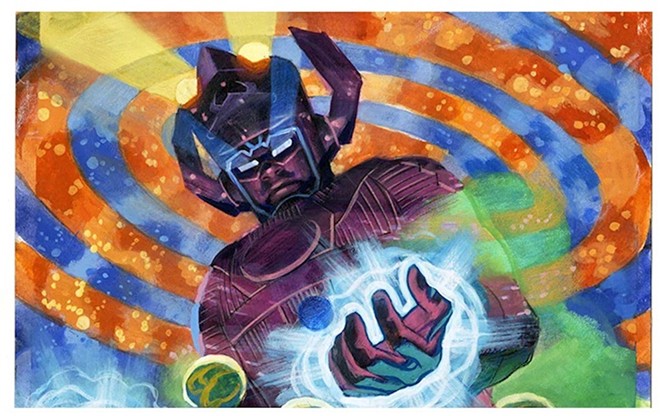
After that jump to the big guys, you're working independently again by crowdfunding projects. It seems like you — not to mention others in the industry — have come full circle. Can you talk about that?
Yeah, sure can. That's a great question, and it's a very important one right now, Sanford. The big companies have changed so much that they're almost unrecognizable. They have drilled themselves into the ground so far — according to me and what I'm trying to propagate, to use a big word — that I want to tell people if you don't like what the big companies are doing right now, you need to do what you feel is best for you and your work.
Because you're not going to have the freedom to pursue it under the ... restrictions of these companies, which have their policies locked in place. That's not a place where most creative people would want to be. And, besides, the rates they're paying right now are so low it's insulting. I think there's going to be a huge freaking sea change going on in the business where people start looking at the big companies as albatrosses, and they're going to rethink everything about their life.
And think about it: what would you rather have? Working under a big company that's going to have you under their thumb and actually squash your imagination more than encourage it? Or are you going to take the thing that's in your head — the very personal thing that's in your head — and develop that in a way that you prefer? Nexus, to me, is a Marvel comic, Sanford. It's just not published by Marvel. But all the influences are there from the Marvel 1960s comics. But if I were to work for Marvel right now, it would be anything but a 1960s Marvel comic, so I want to stay away from them. And I think others might want to also.
Are Marvel and DC victims of their own success? I'm thinking of all the movies and the ubiquity of their brands. Does it make them risk-averse?
Yeah, it's called corporate cowardice.
Steve Rude Workshop, Free, 10 a.m.-6 p.m. Saturday and Sunday, May 4-5, Nelco Comics, 1134 N. Flores St., Suite 2, (210) 863-0360, nelcocomics.com .
Subscribe to SA Current newsletters.
Follow us: Apple News | Google News | NewsBreak | Reddit | Instagram | Facebook | Twitter| Or sign up for our RSS Feed


